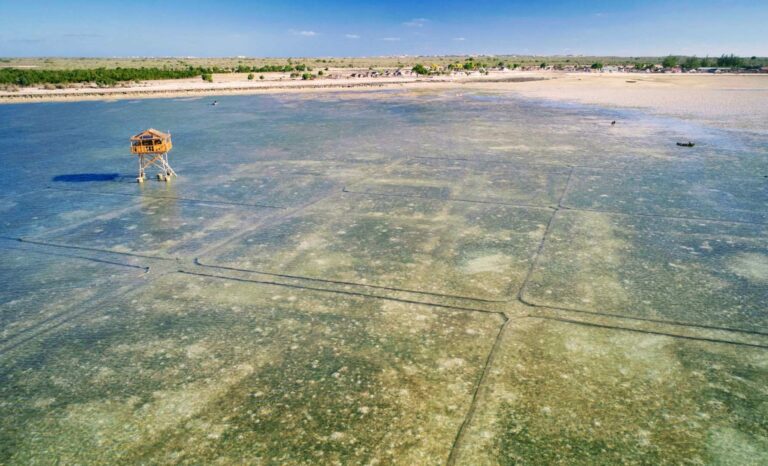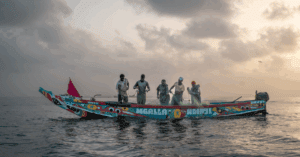After ten years of developing a model for community-based sea cucumber aquaculture with coastal fishing communities, Blue Ventures shared its knowledge outside of Madagascar for the first time at a learning exchange in Unguja, Zanzibar.
At the request of FAO Tanzania, four members of Blue Ventures’ aquaculture team travelled to Unguja in early February to lead training workshops at this gathering of government officials, hatchery technicians, researchers, entrepreneurs, NGOs, and sea cucumber farmers. Our team led sessions designed to provide the necessary skills and technical knowledge to build a viable sea cucumber farming industry in Tanzania.
Sea cucumbers are in high demand in Asian markets where they are considered a delicacy, health food and aphrodisiac, and this has led to wild sea cucumber stocks being overexploited. However, it is possible for coastal communities to farm sea cucumbers using simple tools and techniques.
Blue Ventures supports coastal communities to build these skills, and to develop commercial relationships with private sector aquaculture businesses to create ecologically sustainable and socially viable aquaculture businesses that are locally owned and managed.
Sea cucumber farmers from the coastal village of Tampolove in southwest Madagascar recently experienced their largest ever monthly harvest of over 5,500 sea cucumbers. Together, 78 farmers earned a net profit of $4,800 – an average of over $60 per farmer – after paying all operational costs themselves. In a region where the average income is less than $2 per day, this is a potentially transformative sustainable income.
The learning exchange in Unguja was a watershed moment for the growth of community-based sea cucumber aquaculture in the western Indian Ocean. By forging and reinforcing relationships with partner organisations in new locations who already have their roots in coastal communities, Blue Ventures will be able scale up and refine this model more quickly, effectively and equitably than we could alone.
This short film tells the story of the learning exchange.
For more information, contact National Aquaculture Programme Lead Tim Klückow
The BV aquaculture programme and team would like to sincerely thank and acknowledge our principal partner Norges Vel for their contributions to the development of the community-based sea cucumber farming model.
Many thanks to our commercial partner Indian Ocean Trepang, and thanks to FAO Tanzania, Korea International Cooperation Agency and the Government of Zanzibar for supporting this learning exchange, and thanks to NORAD for supporting our aquaculture work.
Blue Ventures also benefited from the support of the Prince Albert II of Monaco Foundation www.fpa2.org, in collaboration with the University of Edinburgh



















